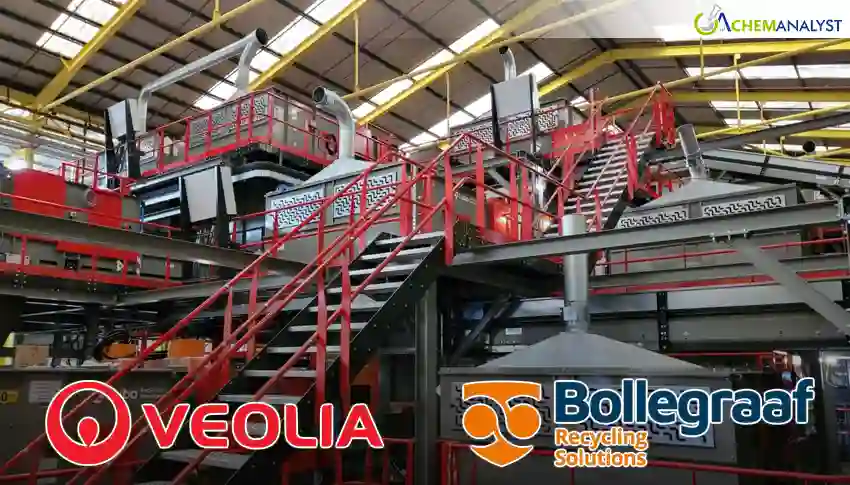Welcome To ChemAnalyst

Veolia partners with Bollegraaf to build UK’s first tray-to-tray PET recycling plant, investing £70m to process 80,000 tonnes annually.
Bollegraaf, a Dutch leader in recycling technology, has been chosen by Veolia to construct the United Kingdom’s first-ever tray-to-tray PET recycling facility. The announcement was made through Bollegraaf’s official website, underscoring the company’s role in driving innovation within Europe’s circular economy. Bollegraaf, together with its sister company Lubo Recycling Solutions, has a strong reputation for providing integrated recycling systems and individual components for third-party facilities. The firm’s momentum has been further strengthened following Summa Equity’s acquisition of a majority stake in the Bollegraaf Group in September 2024.
Veolia, the French multinational known for its waste management and resource recovery operations, officially broke ground on the new project in July 2025. The plant is being developed at a former industrial site in Battlefield, England, which is now being repurposed through a significant £70 million (€81 million) investment. This initiative represents not only a step forward for sustainable packaging but also a local economic boost, with more than 130 permanent jobs expected to be created, alongside numerous temporary positions during the construction phase.
Once operational in early 2026, the facility will specialize in shredding, washing, and flaking PET sourced from both food trays and bottles. The output will be high-quality, food-grade PET flakes, which can then be directly reused in manufacturing new PET trays. With an estimated processing capacity of 80,000 tonnes of mixed plastics annually, the plant will source feedstock from household and business collections across the UK.
According to Darren Davis, Sales Manager for the UK and Ireland at Bollegraaf, the timing of this project is crucial. “The plastic recycling sector is facing many challenges, from low virgin plastic prices to increased competition for rPET from outside the UK,” Davis explained. He highlighted that focusing on specialized niches, such as food-grade packaging materials, is essential for recyclers to remain competitive. “There are strict required standards for food-grade plastics. Producers need to be certain that recycled materials are compliant, and Veolia can provide that reliability. In food packaging, manufacturers cannot afford mistakes.”
The launch of this plant comes at a moment of turbulence for the European recycling sector. Across Europe, several plastics recycling facilities have been forced to shut down, including two of Veolia’s own plants in Germany. Data indicates that in 2024, the total capacity of recycling facilities that ceased operations doubled compared to 2023, and early signs suggest this trend is worsening in 2025.
Despite these headwinds, Veolia’s investment signals long-term confidence in the demand for food-grade recycled plastics. By repurposing existing infrastructure, creating jobs, and supporting closed-loop recycling, the company aims to reinforce the UK’s position as a leader in sustainable packaging innovation.
We use cookies to deliver the best possible experience on our website. To learn more, visit our Privacy Policy. By continuing to use this site or by closing this box, you consent to our use of cookies. More info.
